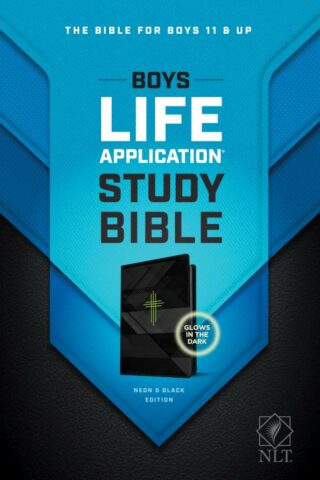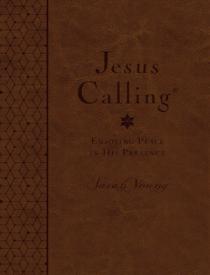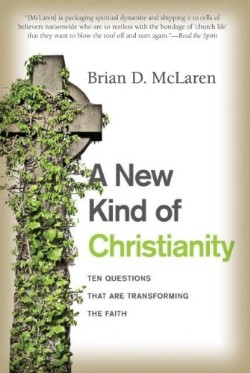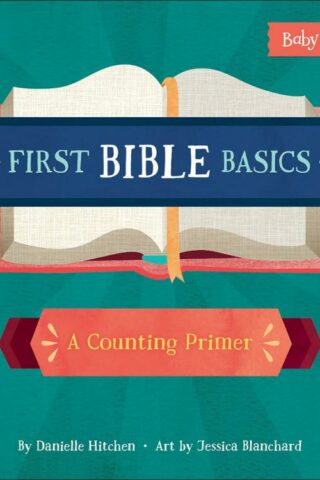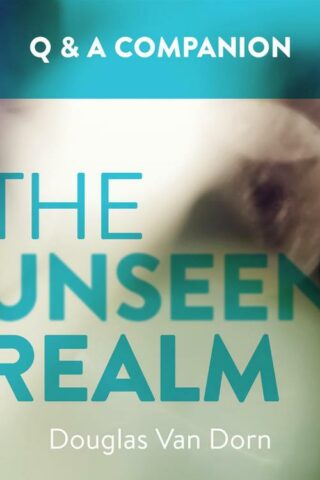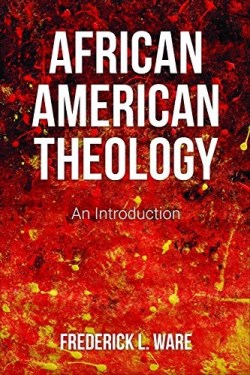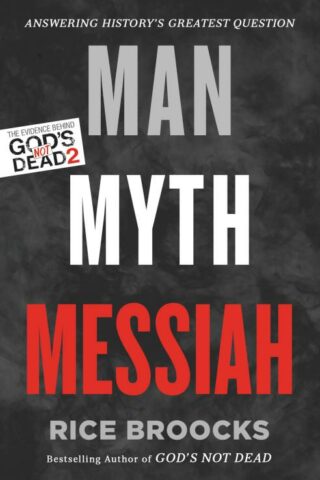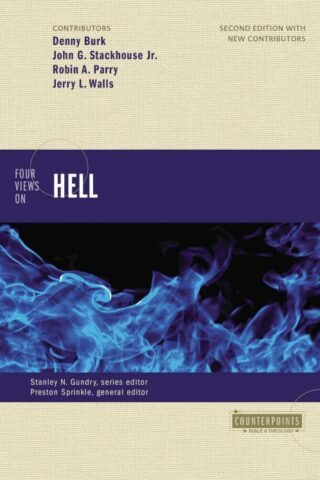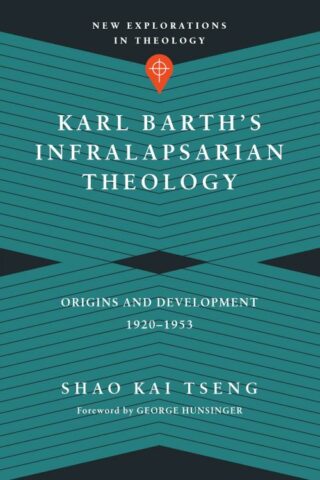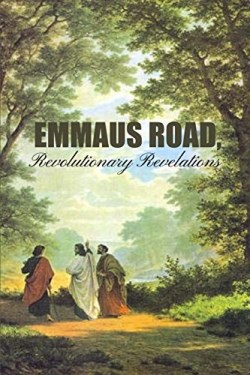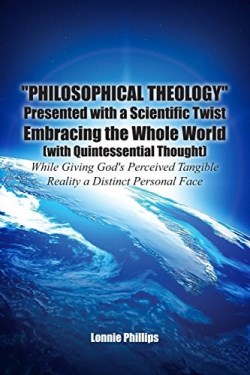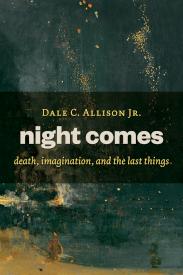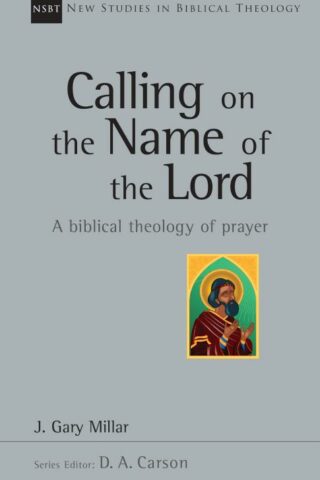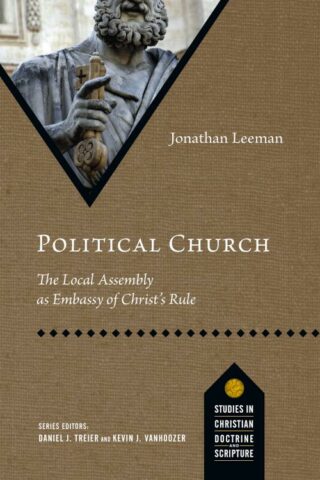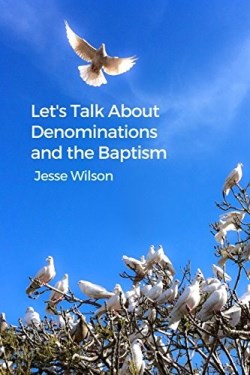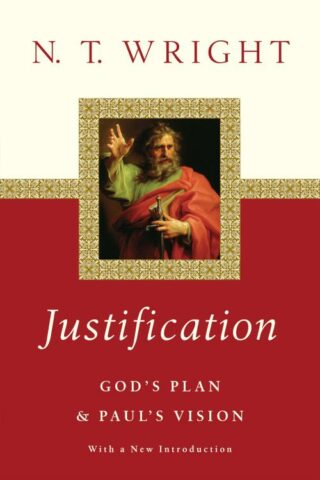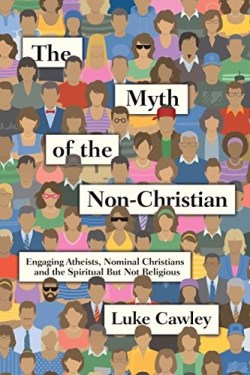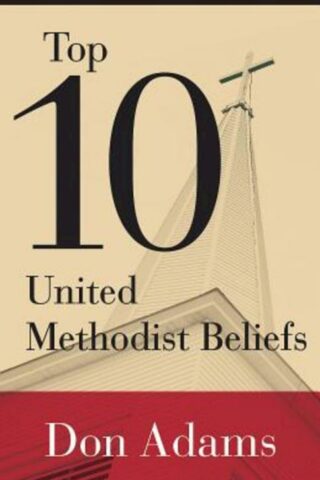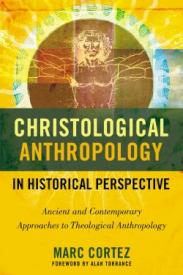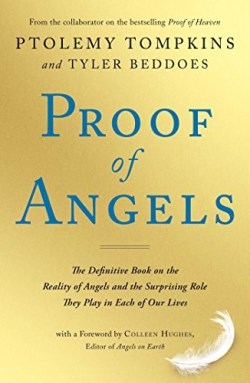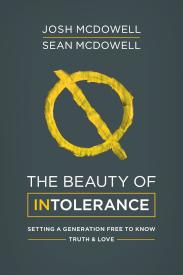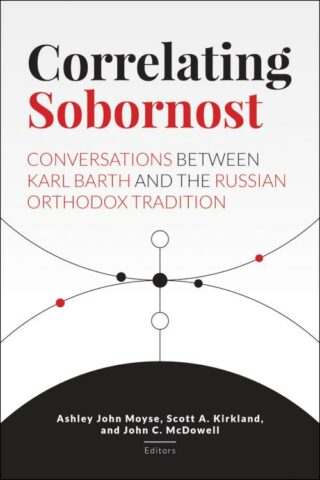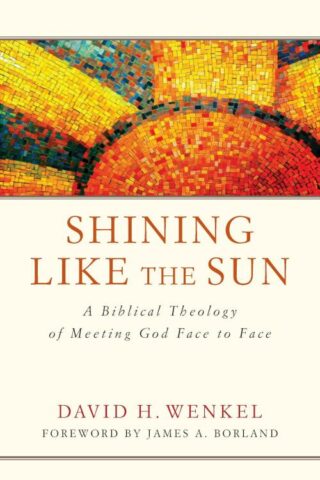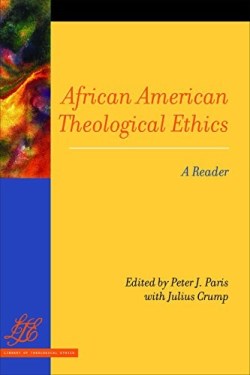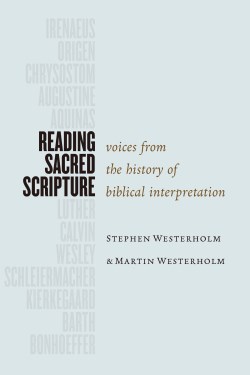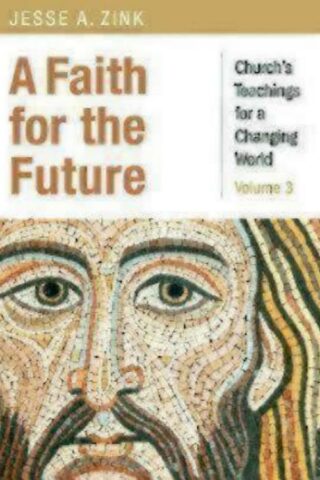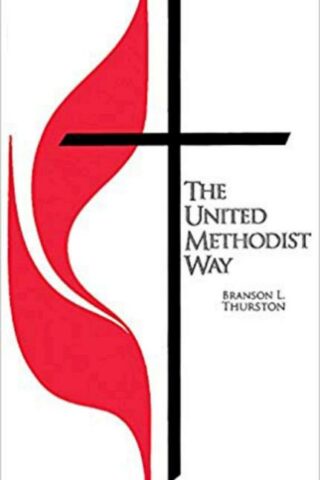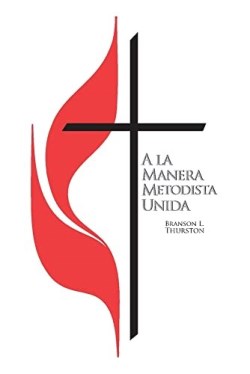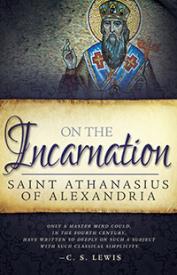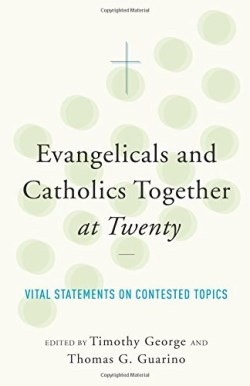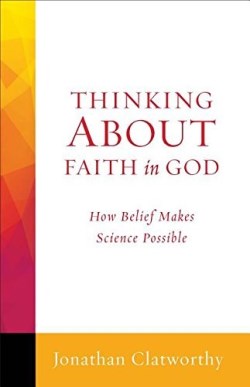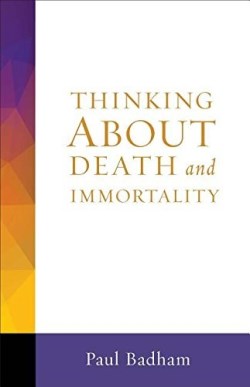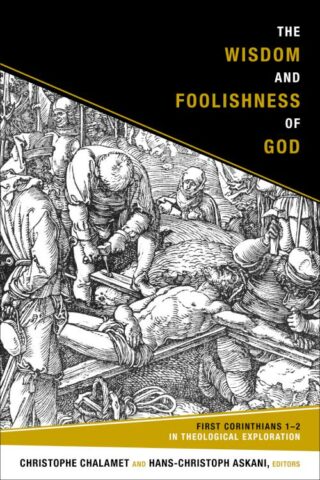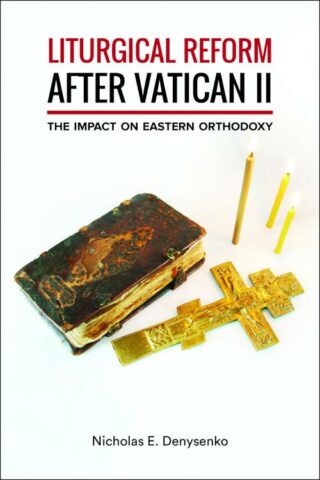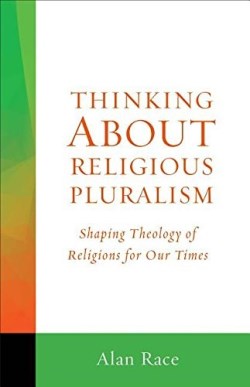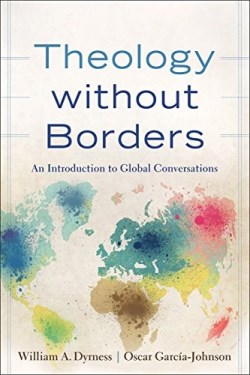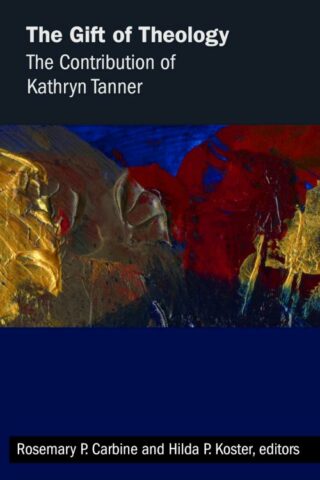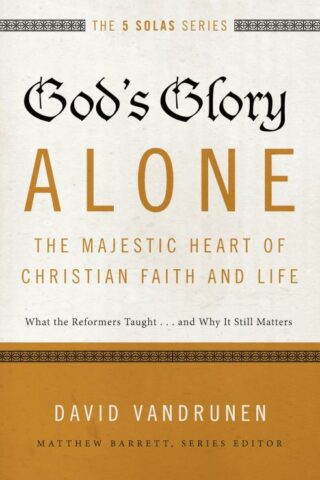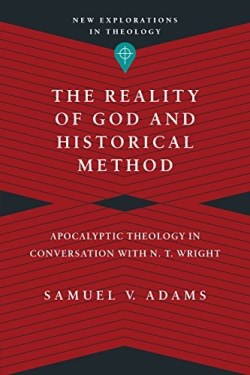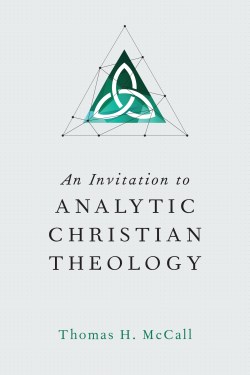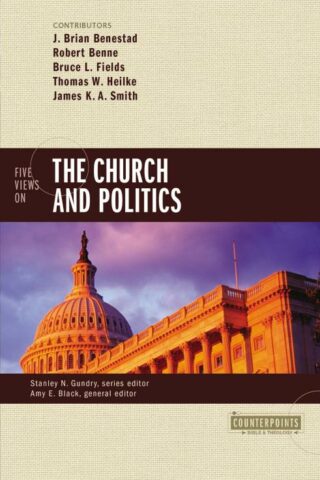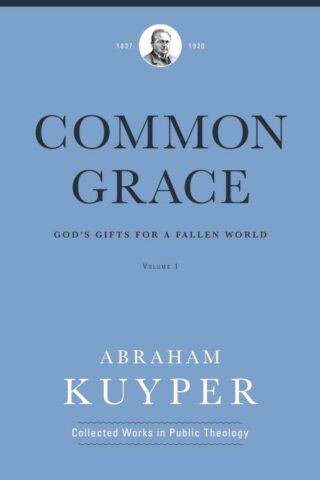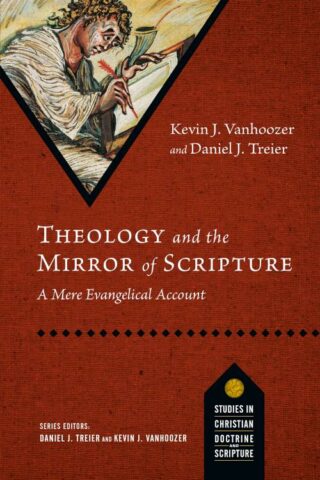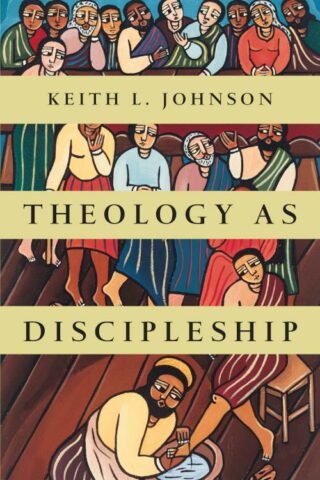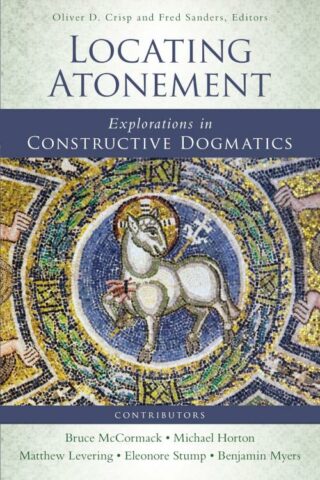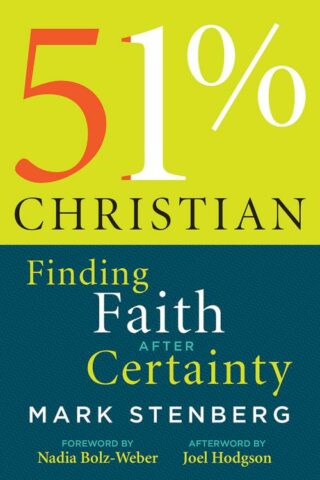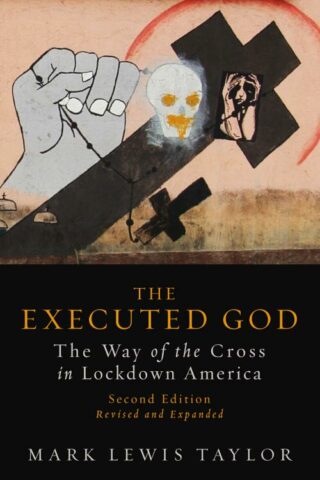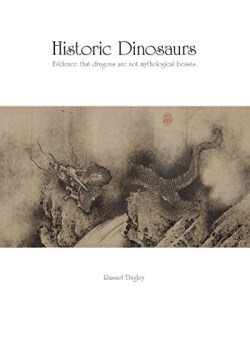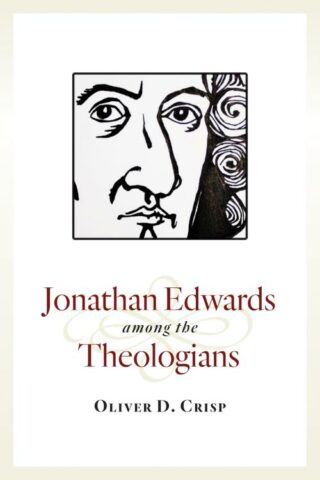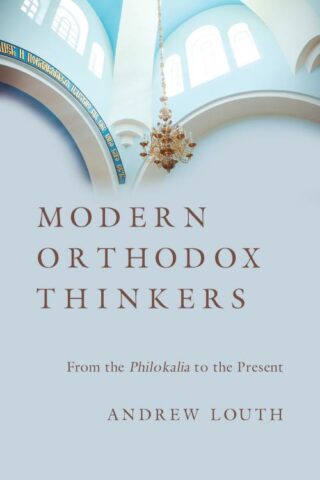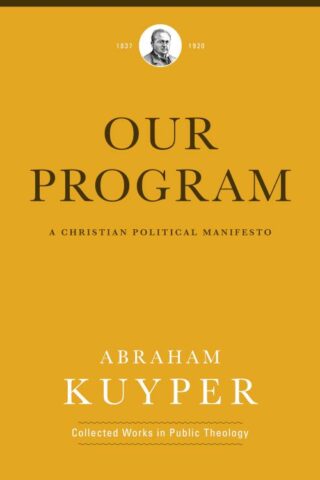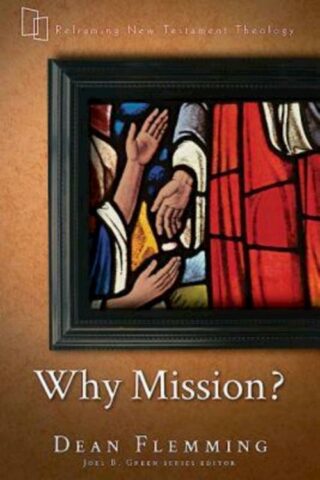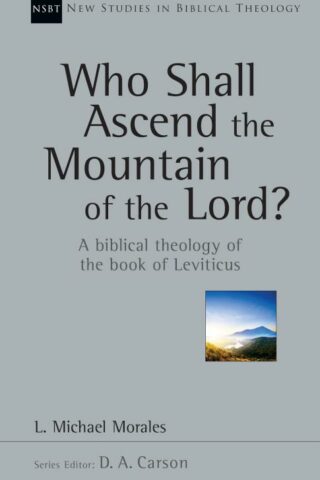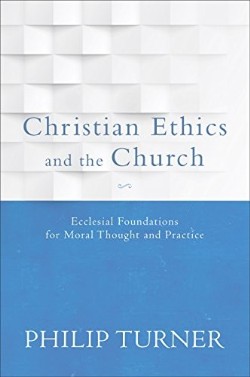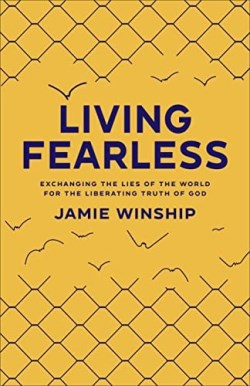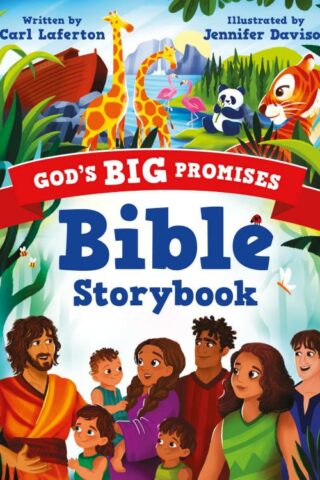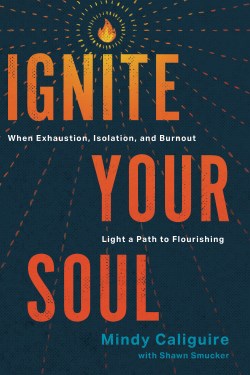Theology (Exegetical Historical Practical etc.)
Showing 1051–1100 of 4078 resultsSorted by latest
-
Unseen Realm A Question And Answer Companion
$10.99In The Unseen Realm, Dr. Michael S. Heiser unpacked fifteen years of research while exploring what the Bible really says about the supernatural world.
Now, Douglas Van Dorn helps you further explore The Unseen Realm with a fresh perspective and an easy-to-follow format. Van Dorn summarizes key concepts and themes and includes questions aimed at helping you gain a deeper understanding of the biblical author’s supernatural worldview. Use your copy of The Unseen Realm: A Question & Answer Companion for personal study or for leading discussion with a small group.
Add to cartin stock within 3-5 days of online purchase
-
African American Theology
$35.00This book presents a substantial introduction to the major methodologies, figures, and themes within African American theology. Frederick L. Ware explores African American theology from its inception and places it within dual contexts: first, the African American struggle for dignity and full humanity; and second, the broader scope of Christian belief. Readers will appreciate Ware’s demonstration of how black theology is expressed in a wide range of sources that includes not only scholarly publications but also African American sermons, music, news and editorials, biography, literature, popular periodicals, folklore, and philosophy. Each chapter concludes with questions for discussion and suggested resources for further study. Ware provides a seasoned perspective on where African American theology has been and where it is going, and he demonstrates its creativity within the chorus of Christian theology.
Add to cartin stock within 3-5 days of online purchase
-
Man Myth Messiah
$19.99Did Jesus Really Exist?
The search for the historical Jesus continues to be headline news. Any speculative theory seems to get instant attention as the debate rages about His real identity and the claims made in His name. Did Jesus really exist? Is there real historical evidence that demonstrates that He lived and actually said and did the things the Gospels record? Is there any validity to the speculative claims that the Jesus story was a myth, borrowed from a variety of pagan cultures of the ancient world?
In this follow-up to the book God’s Not Dead (that inspired the movie), Man, Myth, Messiah looks at the evidence for the historical Jesus and exposes the notions of skeptics that Jesus was a contrived figure of ancient mythology. It also looks at the reliability of the Gospel records as well as the evidence for the resurrection that validates His identity as the promised Messiah. Man, Myth, Messiah will be released concurrent to the God’s Not Dead movie sequel, which will cover the same theme.
Add to cartin stock within 3-5 days of online purchase
-
4 Views On Hell
$18.99Recent years have seen much controversy regarding hell: Do we go to heaven or hell when we die? Or do we cease to exist? Are believers and unbelievers ultimately saved in the end? This second edition of Four Views on Hell, featuring all new contributors, highlights why the church still needs to wrestle with the doctrine of hell. In the familiar counterpoints format, four leading scholars introduce us to the current views on eternal judgment, with particular attention being given to the new voices that have entered the debate. Contributors and views include: Denny Burk: Eternal Conscious Torment John Stackhouse: Annihilationism (Conditional Immortality) Robin Parry: Universalism (Ultimate Reconciliation) Jerry Walls: Purgatory General editor Preston Sprinkle concludes the discussion by evaluating each view, noting significant points of exchange between the essayists. The interactive nature of the volume allows the reader to reflect on the strengths and weaknesses of each view and come to an informed conclusion.
Add to cartin stock within 3-5 days of online purchase
-
Karl Barths Infralapsarian Theology
$40.99Foreword By George Hunsinger
Acknowledgments
Abbreviations
IntroductionPart I: Reappraising Barth’s Lapsarian Position
1. Supra- And Infralapsarianism In The Seventeenth Century: Some Definitions
2. Church Dogmatics 33: Barth’s Lapsarian Position ReassessedPart II: Barth’s Lapsarian Position In Development, 1920-1953
3.Romerbrief II (1920-1921): Lapsarianism In The “Impossible Possibility” Dialectic
4. The Gottingen-Munster Period (1921-1930): Christology And Predestination In The Subject-Object Dialectic
5. The Bonn Years (1930-1935): Human Talk And Divine Word-New Developments?
6. Gottes Gnadenwahl (1936): Infralapsarian Aspects Of Barth’s Christocentric Doctrine Of Election
7. CD II/2 (1939-1942): Christ As Electing God And Elected Human-Lapsarianism “Purified”
8. CD IV/1 (1951-1953): Adamic History And History Of Christ-Infralapsarian Tendencies In Barth’s Doctrine Of SinConclusion
Bibliography
Author Index
Subject IndexAdditional Info
Theologians have long assumed that Karl Barth’s doctrine of election is supralapsarian. Challenging decades of scholarship, Shao Kai Tseng argues that despite Barth’s stated favor of supralapsarianism, his mature lapsarian theology is complex and dialectical, critically reappropriating both supra- and infralapsarian patterns of thinking. Barth can be described as basically infralapsarian because he sees the object of election as fallen humankind and understands the incarnation as God’s act of taking on human nature in its condition of fallenness. Tseng shows that most of Barth’s Reformed critics have not understood his doctrine of election accurately enough to recognize his affinity to infralapsarianism and, conversely, that most Barthians have not understood Reformed-orthodox formulations of election with sufficient accuracy in their disagreement with the tradition. Karl Barth’s Infralapsarian Theology offers a clear understanding of both the historic Lapsarian Controversy and Barth’s distinct form of lapsarianism, providing a charitable dialogue partner to aid mutual understanding between Barth and evangelicals.Add to cartin stock within 3-5 days of online purchase
-
Emmaus Road : Revolutionary Revelations
$11.00Recall the journey Jesus took with the two disciples shortly after His resurrection. Ever wondered which Scriptures He shared as they journeyed together? Herein is only one set, which can show how awesome Jesus’ selections were.
This book uncovers facets of Scripture: doctrine, prophecy, and inspiration of Scripture.
Reading this book with understanding helps to:
Know that our Holy Bible is the Word of God
See what is generally meant by the phrase, Kingdom of God
Understand how prophecy is without predestination
Understand why Scripture is filled with allegories and symbolism
See a detailed account of the beginnings of Christianity
See a detailed account of the Trinity
Add to cartin stock within 3-5 days of online purchase
-
Philosophical Theology Presented With A Scientific Twist
$12.00Lonnie Phillips’ “”Philosophical Ideology”” has been designed to bridge the divide within the Christian Church. What follows in the pages of this book and is, quite honestly, the very essence of this book is an attempt to present the facts about God as Phillips understands Him and what the author went through to get those facts and to also show that journey in order to substantiate God’s character and personality uniquely fashioned. It is as easy as substantiating the words that are written within the pages of this book. Just follow the story line.
“”Philosophical Ideology”” collects praise poetry, sermons, theological essays, and autobiography to provide a window into Phillips’ unique understanding of God Yahweh, the Lord Jesus, the Holy Spirit, the Angelic Realms, the entire Spiritual World, and all of creation. Lonnie Phillips writes, “I imagine God expressing Himself to me, talking to me, and I take every occasion to listen.” And he invites you to listen, too. Will you?
Add to cartin stock within 3-5 days of online purchase
-
Night Comes : Death Imagination And The Last Things
$21.99When he was 23 years old, Dale Allison almost died in a car accident. That terrifying experience dramatically changed his ideas about death and the hereafter. In Night Comes Allison wrestles with a number of difficult questions concerning the last things – such questions as What happens to us after we die? and Why does death so often frighten us?
Armed with his acknowledged scholarly expertise, Allison offers an engaging, personal exploration of such themes as death and fear, resurrection and judgment, hell and heaven, in light of science, Scripture, and his own experience. As he ponders and creatively imagines – engaging throughout with biblical texts, church fathers, rabbinic scholars, poets, and philosophers -Allison offers fascinating fare that will captivate many a reader’s heart and soul.
Add to cartin stock within 3-5 days of online purchase
-
Calling On The Name Of The Lord
$28.99Series Preface
Author’s Preface
Abbreviations
Introduction: Prayer And The Gospel
1. The Day Prayer Began: Prayer In The Pentateuch
2. Big Prayers And The Movements Of History: Prayer In The Former Prophets
3. Praying In The Light Of The Future: Prayer And The Latter Prophets
4. Praying For A New Covenant: Prayer In The Writings
5. The Psalms, The Messiah And The Church
6. Jesus And Prayer: Prayer In The Gospels
7. The Church At Prayer: Prayer In The Book Of Acts
8. Church Planting And Prayer: Prayer In Paul’s Letters
9. The End Of Prayer: Prayer In The Later New Testament
Afterword: Why This Matters- (re)learning To Pray Big Prayers
Bibliography
Index Of Authors
Index Of Scripture ReferencesAdditional Info
“At that time people began to call upon the name of the LORD” (Genesis 4:26 ESV). From this first mention of prayer in the Bible, right through to the end, when the church prays “Come, Lord Jesus!” (Revelation 22:20), prayer is intimately linked with the gospel?God’s promised and provided solution to the problem of human rebellion against him and its consequences. After defining prayer simply as “calling on the name of the Lord,” Gary Millar follows the contours of the Bible’s teaching on prayer. His conviction is that even careful readers can often overlook significant material because it is deeply embedded in narrative or poetic passages where the main emphases lie elsewhere. Millar’s initial focus is on how “calling on the name of the Lord” to deliver on his covenantal promises is the foundation for all that the Old Testament says about prayer. Moving to the New Testament, he shows how this is redefined by Jesus himself, and how, after his death and resurrection, the apostles understood “praying in the name of Jesus” to be the equivalent new covenant expression. Throughout the Bible, prayer is to be primarily understood as asking God to deliver on what he has already promised?as Calvin expressed it, “through the gospel our hearts are trained to call on God’s name” (Institutes 3.20.1). This New Studies in Biblical Theology volume concludes his valuable study with an afterword offering pointers to application to the life of the church today. Addressing key issues in biblical theology, the works comprising New Studies in Biblical Theology are creative attempts to help Christians better understand their Bibles. The NSBT series is edited by D. A. Carson, aiming to simultaneously instruct and to edify, to interact with current scholarship and to point the way ahead.Add to cartin stock within 3-5 days of online purchase
-
Political Church : The Local Assembly As Embassy Of Christs Rule
$45.99Preface
Introduction
1. What Is Politics?
2. What Is An Institution?
3. The Politics Of Creation
4. The Politics Of The Fall
5. The Politics Of The New Covenant
6. The Politics Of The Kingdom
Conclusion
Author Index
Subject Index
Scripture IndexAdditional Info
The church is political. Theologians have been debating this claim for years. Liberationists, Anabaptists, Augustinians, neo-Calvinists, Radical Orthodox and others continue to discuss the matter. What do we mean by politics and the political? What are the limits of the church’s political reach? What is the nature of the church as an institution? How do we establish these claims theologically? Jonathan Leeman sets out to address these questions in this significant work. Drawing on covenant theology and the “new institutionalism” in political science, Leeman critiques political liberalism and explores how the biblical canon informs an account of the local church as an embassy of Christ’s kingdom. Political Church heralds a new era in political theology.Add to cartin stock within 3-5 days of online purchase
-
Lets Talk About Denominations And The Baptism
$12.00Everyone knows that denominations are wrong, but no one is doing anything about it. This book was written for all to read-both Christians and non-Christians. Author Jesse Wilson hopes this book will be a blessing and a wakening for all Christians and an educational tool to the confused non-Christians. He hopes these words will close this centuries-old chapter on how we should baptize. We are followers of the apostles’ doctrine. We should do it according to their doctrine and according to Christ.
Add to cartin stock within 3-5 days of online purchase
-
Justification : Gods Plan And Pauls Vision
$32.99Few issues are more central to the Christian faith than the nature, scope and means of salvation. Many have thought it to be largely a transaction that gets one to heaven. In this riveting book, N. T. Wright explains that God’s salvation is radically more than this. At the heart of much vigorous debate on this topic is the term the apostle Paul uses in several of his letters to describe what happens to those in Christ-justification. Paul uses this dramatic image from the law court to declare that Christians are acquitted of the cosmic accusations against them. But justification goes beyond this in Paul’s writings to offer a vision of God’s future for the whole world as well as for his people. Here in one place Wright now offers a comprehensive account and defense of his perspective on this crucial doctrine. He provides a sweeping overview of the central points in the debate before launching into a thorough explanation of the key texts in Paul’s writings. While fully cognizant of tradition and controversy, the final authority for his conclusions is the letters of Paul themselves. Along the way Wright responds to critics, such as John Piper, who have challenged what has come to be called the New Perspective. For Wright, what Paul means by justification is nothing less than God’s unswerving commitment to the covenant promise he made to bless the whole world through Abraham and his family. This irenic response is an important contribution for those on both sides of the debate-and those still in between-to consider. Whether you’re a fan of Wright’s work or have read his critics and would like to know the other side of the story, here is a chance to interact with Wright’s views on the issues at stake and form your own conclusions.
Add to cartin stock within 3-5 days of online purchase
-
Myth Of The Non Christian
$20.99Publisher Marketing: There’s no such thing as a non-Christian. Somebody might self-identify as spiritual but not religious. Or they might be a practicing Hindu, Buddhist or Muslim. Or they might call themselves an atheist, freethinker or agnostic. But the one thing that people never describe themselves as is a “non-Christian.” So Christians who want to “reach non-Christians” need to realize that they’re not all the same. Evangelism is not one-size-fits-all. Evangelist Luke Cawley shows how Christians can contextualize the gospel in different ways to connect with different kinds of people. Here he unpacks the religious identities of three key demographics: the spiritual but not religious, committed atheists and nominal Christians. Each group has particular characteristics and requires specific approaches and practices to make the Christian faith plausible, desirable and tangible to them. Filled with real-life stories of changed lives, this book is a practical and hopeful resource for helping people to encounter God.
Add to cartin stock within 3-5 days of online purchase
-
Top 10 United Methodist Beliefs
$17.99There can be no doubt about what Jesus thought was “the main thing,” the Great Commandments to love God with our heart, soul, and mind and to love neighbor as yourself. What were the non-negotiables for the founder of the Methodist movement, John Wesley? Wesley’s first priority was to grow Christian disciples who loved God and neighbor with a holy love that keeps those Commandments. As United Methodists what is our primary purpose? Put simply, it is to follow Christ as redeemed persons who put those Commandments into daily practice. Using John Wesley as guide, this book will describe the ten most important United Methodist beliefs, so that we are equipped for every good work. This book will describe how a passionate Wesley can still inspire us to travel the road to perfection using these basic beliefs as signposts, not hitching posts, so that we can more fully follow Jesus. But discipleship can be arduous and God’s grace is not cheap. We must be prepared to walk and walk and not just talk. The Christian life is action packed with surprises at every turn. “Are you able?” as the old hymn asks. Yes, Lord, we are able through the power and love of God to be accountable to Jesus and each other. Each chapter includes study questions suitable for personal reflection and group conversation.
Add to cartin stock within 3-5 days of online purchase
-
Christological Anthropology In Historical Perspective
$27.99Many theologians begin their discussion of the human person by claiming that in some way Jesus Christ reveals what it means to be “truly human,” but this often has little impact in the material presentation of their anthropology. Although modern theologians often fail to reflect robustly on the relationship between Christology and anthropology, though this has not necessarily been the case throughout church history. In Christological Anthropology in Historical Perspective, Marc Cortez looks at the ways several key theologians-Gregory of Nyssa, Julian of Norwich, Martin Luther, Friedrich Schleiermacher, Karl Barth, John Zizioulas, and James Cone-have used Christology to inform their understanding of the human person. Based on this historical study, he concludes with a constructive proposal for how Christology and anthropology should work together to inform our view of what it means to be human.
Add to cartin stock within 3-5 days of online purchase
-
Proof Of Angels
$16.99From the collaborator of the blockbuster bestseller Proof of Heaven comes the definitive book proving angels are real, all around us, and interacting in our lives every day.
In March 2015, millions worldwide were captivated by news reports of the dramatic rescue of an eighteen month old girl, Lily Groesbeck, who’d somehow survived fourteen hours in an overturned car partially submerged in an icy-cold Utah river after her mother apparently lost control of the vehicle. A voice the four responding officers assumed was the child’s mother still trapped inside spurred them on: “Help me, help me.” Yet, once the two victims were recovered, it was clear that the voice could not have come from Lily’s mother: she’d been killed on impact.
New York Times bestselling author Ptolemy Tompkins, with the help of Tyler Beddoes, one of the responding officers who helped rescue Lily, will explain this modern-day miracle and the existence of angels in our world.
Proof of Angels weaves real-life stories into a rich narrative, exploring the history, nature, and significance of angels in our lives. With an introduction by Colleen Hughes, the editor-in-chief of Angels on Earth magazine, Proof of Angels proves that the barrier between the spiritual and the scientific is less certain than we often think. Not only does Tompkins offer a highly entertaining look into a universally fascinating topic, but he also delivers a fresh and deeply reassuring message: we are not alone.
Add to cartin stock within 3-5 days of online purchase
-
Beauty Of Intolerance
$16.99Today’s message of cultural acceptance is dangerously distorted and deceptive. In a world that shouts: “If you truly care about other people, you must agree that their beliefs, values, lifestyle, and truth claims are equal and as valid as yours!” it’s no wonder our youth are confused. The Beauty of Intolerance–brand-new from Josh McDowell with son Sean McDowell–cuts through the confusion and points you back to the place where the only truth resides. . .Jesus Christ. Tied directly to the Heroic Truth initiative launched by the Josh McDowell Ministry, McDowell will share how a biblical view of truth can counter cultural tolerance and encourage a love and acceptance of others apart from their actions with a heart of
Add to cartin stock within 3-5 days of online purchase
-
Correlating Sobornost : Conversations Between Karl Barthand The Russian Ort
$131.66SKU (ISBN): 9781506410753ISBN10: 1506410758Editor: Ashley Moyse | Editor: Scott Kirkland | Editor: John McDowellBinding: Cloth TextPublished: February 2016Publisher: Augsburg Fortress Publishers – 1517 Media Print On Demand Product
Add to cartin stock within 3-5 days of online purchase
-
Shining Like The Sun
$15.99Introduction
1. Adam And Eve: Face To Face With God In The Garden Of Eden
2 Jacob: Face To Face With God At The River Jabbok
3. Moses: Face To Face With God At Mount Sinai
4. Face To Face With God In The Wilderness
5. Face To Face With God In The Time Of The Judges
6. Face To Face In The Psalms
7. Face To Face With God In The Exile
8. Face To Face With God In Jesus Christ
9. Face To Face With God At The Mount Of Transfiguration
10. Face To Face With God In The New Covenant Community
11. Face To Face With God In The New Heavens And The New Earth
Additional Info
The smile of God thrills the soul. Shining Like the Sun examines all the key passages in the Bible that tell of favorable encounters with God and how they produce life-changing, stirring results, both internally and externally.This is the first sustained, whole-Bible treatment on the theme of meeting God face to face. Starting with Genesis and ending with Revelation, the author systematically covers the major events in salvation history, all of which reveal the beauty of encountering God’s grace in abundance.
Add to cartin stock within 3-5 days of online purchase
-
African American Theological Ethics
$60.00This volume in the Library of Theological Ethics series draws on writings from the early nineteenth through the late twentieth centuries to explore the intersection of black experience and Christian faith throughout the history of the United States. The first sections follow the many dimensions of the African American struggle with racism in this country: struggles against theories of white supremacy, against chattel slavery, and against racial segregation and discrimination. The latter sections turn to the black Christian vision of human flourishing, drawing on perspectives from the arts, religion, philosophy, ethics, and theology. It introduces students to major voices from African American Christianity, including Frederick Douglass, Richard Allen, W. E. B. DuBois, Marcus Garvey, Martin Luther King Jr., Bayard Rustin, Barbara Jordan, James H. Cone, and Jacqueline Grant. This is the essential resource for anyone who wishes to understand the role that Christian faith has played in the African American struggle for a more just society.
Add to cartin stock within 3-5 days of online purchase
-
Reading Sacred Scripture
$43.99A rich display of the Christian tradition’s reading of Scripture
Though well-known and oft-repeated, the advice to read the Bible “like any other book” fails to acknowledge that different books call for different kinds of reading. The voice of Scripture summons readers to hear and respond to its words as divine address. Not everyone chooses to read the Bible on those terms, but in Reading Sacred Scripture Stephen and Martin Westerholm (father and son) invite their readers to engage seriously with a dozen major Bible interpreters – ranging from the second century to the twentieth – who have been attentive to Scripture’s voice.
After expertly setting forth pertinent background context in two initial chapters, the Westerholms devote a separate chapter to each interpreter, exploring how these key Christian thinkers each understood Scripture and how it should be read. Though differing widely in their approaches to the text and its interpretation, these twelve select interpreters all insisted that the Bible is like no other book and should be read accordingly.
Add to cartin stock within 3-5 days of online purchase
-
Manera Metodista Unida – (Spanish)
$4.00Traduccion y adaptacion de *The United Methodist Way.** A traves de este librillo se ofrece informacion general sobre la historia, las creencias, la organizacion, y la mision de la Iglesia Metodista Unida.
Add to cartin stock within 3-5 days of online purchase
-
On The Incarnation
$15.00During the fourth century, controversy raged in the church regarding the nature of Jesus Christ. On one side were the Arians, led by the Bishop Arius, who argued that Father, Son, and Holy Spirit were materially separate from one another. They believed that Jesus had been created out of “non-existence” and thus was not on the same level of divinity as God the Father. In response, Athanasius, Bishop of Alexandria, wrote On the Incarnation, a staunch defense of the full divinity and full humanity of Christ. In simple language and with Scripture as a guide, he argued for the eternal nature of the Trinity and that Jesus Christ is not a creation of God the Father but has existed from the very beginning. Athanasius celebrates the redeeming work that came forth through the God-man, Jesus Christ, and His eternal existence and essential unity with the Father.
Ultimately, Athanasius was exiled five times by four different Roman emperors due to his defense of the Trinity, but he remained faithful to his beliefs. Today, On the Incarnation is often included on lists of books every Christian should read.
Add to cartin stock within 3-5 days of online purchase
-
Evangelicals And Catholics Together At 20
$41.66Founded by Charles Colson and Richard John Neuhaus in 1994, Evangelicals and Catholics Together (ECT) has fostered a fruitful conversation on the meaning of the gospel in today’s world. Over the course of twenty years, ECT has issued nine statements addressing contemporary topics. This one-volume guide, the first collection of the ECT statements, explores the key accomplishments of this groundbreaking, ongoing dialogue. Introductions and notes provide context and discuss history and future prospects. The book includes prefaces by J. I. Packer and Cardinal Timothy Dolan, a foreword by George Weigel, and an epilogue by R. R. Reno and Kevin Vanhoozer.
Add to cartin stock within 3-5 days of online purchase
-
Thinking About Faith In God
$23.33For many decades, militant atheism and religious dogmatism have fed off of each other. Each intellectual argument and rhetorical flourish acts as encouragement and cause for further passion in the other.
Into this mix, author Jonathan Clatworthy offers a different alternative: “to reject neither reason nor God, because believing in God makes sense.”Clatworthy starts by outlining the history of our current problem. The antagonism between belief and science, he says, is the product of a unique history. The either/or dichotomy that emerged from this story is not inevitable and places us at odds with countless other cultures who find a way to hold the two in suspension.
Using the most common reasons for belief, including design, values, morality, and experience, Clatworthy creates a compelling tapestry that commends belief in God in the scientific age.
An essential read for anyone interested in science, spirituality, and faith in the modern world.
Add to cartin stock within 3-5 days of online purchase
-
Thinking About Death And Immortality
$23.33For many people belief in the afterlife has evaporated. Scientific discoveries about the history of our species, our growing understanding of the vastness of the universe, new findings in brain research: these things and many others conspire to make belief in immortality difficult.
In this thoughtful companion to scientific realities of our time, Paul Badham explores the grounds on which the hope of immortality, central for Christian doctrine, can be revitalized today. He suggests that the possibility of a relationship between God and human beings is confirmed by our religious experience, and that resurrection and immortality need each other.
Written in a balanced, even-handed tone, it’s a helpful, considered, and ultimately hopeful discussion for people with questions. Even those who don’t ultimately agree with the author’s conclusions will benefit from the engagement.
Includes chapters on the evidential value of near-death experiences, concepts of heaven, and arguments against belief in hell.
Add to cartin stock within 3-5 days of online purchase
-
Wisdom And Foolishness Of God
$73.33The first two chapters of Paul’s first epistle to the Christians of Corinth, written in the fifth decade of the first century, have played a significant role in the history of Christian theology. Interpreting the central event in Christianity, namely the crucifixion of Jesus, Paul reflects on the wisdom and foolishness of God, which he opposes to the world’s wisdom. According to Paul, the ” ;word of the cross,” ; which is ” ;foolishness” ; to some and ” ;scandal” ; to others, leads to an upheaval in one’ ;s way of thinking. For two millenia, theology has often turned to these passages in order to sustain its reflection.
Many central questions emerge from Paul’ ;s text on the meaning of a crucified Messiah, on God’ ;s omnipotence, weakness, and suffering. This volume hopes to achieve two things by seeking to place exegetes, historians, philosophers, and theologians in conversation: to better understand Paul’ ;s text and its reception and also to examine the ways in which it can nourish our theological reflection today.
Add to cartin stock within 3-5 days of online purchase
-
Liturgical Reform After Vatican 2
$73.33Sacrosanctum Concilium (SC) was the first document promulgated by the Second Vatican Council. The impact of this document was broad and ecumenical-the liturgical reforms approved by the Council reverberated throughout Christendom, impacting the order and experience of worship in Reformed and Orthodox Churches. Unrecognized in most studies, the Orthodox Churches were also active participants in the liturgical movement that gained momentum through the Catholic and Protestant Churches in the twentieth century. This study examines Orthodox liturgical reform after Vatican II through the lens of Catholic-Orthodox ecumenical dialogue. After establishing the retrieval of the priesthood of the laity and active liturgical participation as the rationales for liturgical reform, the study presents the history of liturgical reform through four models: the liturgical reforms of Alexander Schmemann; the alternative liturgical center in the Russian Orthodox Church Outside of Russia (ROCOR); the symposia on liturgical rebirth authorized by the Church of Greece; and the renewed liturgy of New Skete Monastery. Following a discussion of the main features of liturgical reform, catechesis, ars celebrandi, and the role of the clergy, Denysenko concludes with suggestions for implementing liturgical reform in the challenges of postmodernity and in fidelity to the contributions of Catholic-Orthodox ecumenical dialogue.
Add to cartin stock within 3-5 days of online purchase
-
Thinking About Religious Pluralism
$23.33We live an era of globalization, and the world’s religious traditions are deeply impacted. Throughout the world, an increased awareness about and access to the world’s religions, whether through modern media, human encounter, or education, raises new questions. How should we think about different traditions? What do they mean? How should Christians respond?
This book is about how to interpret the fact of many religions, concentrating on what we call the ‘”world religions’,” for this has been the focus of most of the theological debate over the past fifty years or so. It aims to equip Christian thinkers with a positive, affirming understanding of religious diversity, and to help Christians articulate the meaning of this diversity in the real world.
The result for the reader is comfort, curiosity, and engagement in future meetings with members of other traditions, along with lowered anxiety and deepened understanding of the marvelous diversity of human religious expression in our world.
Add to cartin stock within 3-5 days of online purchase
-
Gift Of Theology
$98.33Kathryn Tanner is undoubtedly one of the most important contemporary North American theologians. From landmark studies in systematic and constructive theology to economics, Tanner’s work is a contribution of inestimable value, hallmarked by its depth, precision, provocativeness, and grace. Unifying the immense scope of her work is the particular vision of God’s self-gift: an internal, dynamic, communal reality that is expressed outward in acts of love and generosity that are creation, incarnation, and capacious life in the Spirit. This vision, as the grounding matrix of Tanner’s theology, has been extended beyond the disciplinary boundaries of theology in constructive explorations of economics, social and political theory, cultural studies, and ethics. This volume celebrates the vision and breadth of Tanner’s unique contribution. Essays by established scholars, colleagues, and former students trace out the key loci and themes, from theological method, the Trinity, Christology, creation, to economics, environmental and social ethics, and politics, to generate constructive and ecumenical conversation that presents Tanner as an important, contemporary public theologian.
Add to cartin stock within 3-5 days of online purchase
-
Gods Glory Alone The Majestic Heart Of Christian Faith And Life
$16.99Historians and theologians have long recognized that at the heart of the sixteenth-century Protestant Reformation were five declarations, often referred to as the ‘solas’: sola scriptura, solus Christus, sola gratia, sola fide, and soli Deo gloria. These five statements summarize much of what the Reformation was about, and they distinguish Protestantism from other expressions of the Christian faith. Protestants place ultimate and final authority in the Scriptures, acknowledge the work of Christ alone as sufficient for redemption, recognize that salvation is by grace alone through faith alone, and seek to do all things for God’s glory.
In God’s Glory Alone-The Majestic Heart of Christian Faith and Life, renowned scholar David VanDrunen looks at the historical and biblical roots of the idea that all glory belongs to God alone. He examines the development of this theme in the Reformation, in subsequent Reformed theology and confessions, and in contemporary theologians who continue to be inspired by the conviction that all glory belongs to God. Then he turns to the biblical story of God’s glory, beginning with the pillar of cloud and fire revealed to Israel, continuing through the incarnation, death, and exaltation of the Lord Jesus Christ, and culminating in Christ’s Second Coming and the glorification of his people. In light of these wonderful biblical themes he concludes by addressing several of today’s great cultural challenges and temptations-such as distraction and narcissism-and reflecting on how commitment to God’s glory alone fortifies us to live godly lives in this present evil age.
Add to cartin stock within 3-5 days of online purchase
-
Reality Of God And Historical Method
$44.99After a flurry of heated debates in the mid-twentieth century over the relationship between faith and history, the dust seems to have settled. The parties have long since dispersed into their separate camps. The positions are entrenched and loyalties are staked out. This first volume in the New Explorations in Theology is a deliberate attempt to kick up the dust again, but this time as a constructive development of what is now being called “apocalyptic theology.” Samuel Adams argues that any historiography interested in contributing to theological knowledge must take into consideration, at a methodological level, the reality of God that has invaded history in Jesus Christ. He explores this idea in critical dialogue with the writings of New Testament historian and theologian N. T. Wright, whose work has significantly shaped the current conversation on this problem. The Reality of God and Historical Method is a fresh, bold and interdisciplinary exploration of the question: How is it possible to say that a particular historical person is the reconciliation of the world?
Add to cartin stock within 3-5 days of online purchase
-
Introduction To Analytic Christian Theology
$25.99In recent decades a new movement has arisen, bringing the conceptual tools of analytic philosophy to bear on theological reflection. Called analytic theology, it seeks to bring a clarity of thought and a disciplined use of logic to the work of constructive Christian theology. In this introduction to analytic theology for specialists and nonspecialists alike, Thomas McCall lays out what it is and what it isn’t. The goal of this growing and energetic field is not the removal of all mystery in theology. At the same time, it insists that mystery must not be confused with logical incoherence. McCall explains the connections of analytic theology to Scripture, Christian tradition and culture, using case studies to illuminate his discussion. Beyond mere description, McCall calls the discipline to a deeper engagement with the traditional resources of the theological task.
Add to cartin stock within 3-5 days of online purchase
-
5 Views On The Church And Politics
$24.98Few topics can grab headlines and stir passions quite like politics, especially when the church is involved. Considering the attention that many Christian parachurch groups, churches, and individual believers give to politics-and of the varying and sometimes divergent political ideals and aims among them-Five Views on the Church and Politics provides a helpful breakdown of the possible Christian approaches. Readers will find themselves equipped to think more deeply about the relationship between church and state in a way that goes beyond mere policy debates and current campaigns. General Editor Amy Black brings together five top-notch political theologians in the book, each representing one of the five key political traditions within Christianity:
*Anabaptist (Separationist)-Thomas Heilke
*Lutheran (Two Kingdom)-Robert Benne
*Catholic (In Tension)-J. Brian Benestad
*Reformed (Integrationist)-James K. A. Smith
*Black Church (Prophetic)-Bruce FieldsEach author addresses his tradition’s theological distinctives, the role of government, the place of individual Christian participation in government and politics, and how churches should (or should not) address political questions. Responses by each contributor to opposing views will highlight key areas of difference and disagreement. Thorough and even-handed, Five Views on the Church and Politics will enable readers to consider the strengths and weaknesses of the most significant Christian views on political engagement and to draw their own, informed conclusions.
Add to cartin stock within 3-5 days of online purchase
-
Common Grace Volume1
$55.99In Common Grace Abraham Kuyper presents a constructive public theology of cultural engagement rooted in the humanity Christians share with the rest of the world. He addresses a gap in the development of Reformed teaching on divine grace, and he articulates a Reformed understanding of God’s gifts that are common to all people after the fall into sin. This first volume contains Kuyper’s demonstration of common grace in its origin and operation.
This new translation of Common Grace, created in partnership with the Kuyper Translation Society and the Acton Institute, is part of a major series of new translations of Kuyper’s most important writings. The Abraham Kuyper Collected Works in Public Theology marks a historic moment in Kuyper studies, aimed at deepening and enriching the church’s development of public theology.
Add to cartin stock within 3-5 days of online purchase
-
Theology And The Mirror Of Scripture
$30.99Evangelicalism has long been a hotly disputed label, and what counts as evangelical theology is often anyone’s guess. Is evangelicalism a static bounded set defined by clear doctrinal limits, or is it a dynamic centered set without a discernible circumference? In this inaugural volume in the Studies in Christian Doctrine and Scripture, Kevin Vanhoozer and Daniel Treier present evangelical theology as an “anchored” set, rooted in the Trinity. In response to increasing evangelical fragmentation, Theology and the Mirror of Scripture offers a clarion call to reconceive evangelical theology theologically by reflecting on the God of the gospel as mirrored in Scripture. Such “mere” evangelical theology will be an exercise in Christian wisdom for the purpose of building up the fellowship of saints.
Add to cartin stock within 3-5 days of online purchase
-
Theology As Discipleship
$25.99Acknowledgments
Preface1. Recovering Theology
Concerns With Theology
What Went Wrong?
Rebuilding The Discipline2. Being In Christ
Reframing Reality
God’s Eternal Plan
Theology By Participation3. Partnership With Christ
The Pattern Of Partnership
Life With Christ
Theology With Christ4. The Word Of God
God And Human Words
God And Written Words
Christ And Scripture
Test Case: Jesus And The Pharisees
Reading With Christ5. Hearing The Word Of God
Reading In Love
Hearing With The Church
Test Case: Circumcision
Theology Of The Word6. The Mind Of Christ
The Pattern Of Christ’s Mind
Imitating Christ
Thinking After Christ7. Theology In Christ
Subject Index
Scripture IndexAdditional Info
For many people, the word “theology” evokes something dry, academic, irrelevant and disconnected from the everyday concerns of life. We surely would not say that about God, so why is our talk about God any different? In this engaging and accessible introduction, Keith Johnson takes a fresh look at theology. He presents the discipline of theology as one of the ways we participate in the life of the triune God. Without suggesting it should be removed from the academy, Johnson argues that theology has to be integrally connected to the traditions and practices of the church. If academic theology is to be genuinely theological, then it has to be carried out in obedience to Jesus Christ and in service to the church. Unlike other introductions, Theology as Discipleship avoids the usual overview of doctrines according to the creed, which traditionally move from the Trinity to eschatology. Johnson instead explains the content of theology by describing the Christian life?being in Christ, hearing God’s Word, sharing the mind of Christ. Theology not only leads to discipleship, but is itself a way of following after Christ in faith.Add to cartin stock within 3-5 days of online purchase
-
Locating Atonement : Explorations In Constructive Dogmatics
$26.99The proceedings of the third annual Los Angeles Theology Conference seek to identify the place of the doctrine of atonement in systematic theology. Locating Atonement: Explorations in Constructive Dogmatics intentionally excludes discussion of theories of atonement, typologies of those theories, and contests among various theories. Instead, it undertakes the question: What else is there to do in atonement theology besides rehashing types and theories?
Add to cartin stock within 3-5 days of online purchase
-
51 Percent Christian
$28.31God is not an idea. Christian faith is not a set of propositions you either believe or reject. According to a proper Trinitarian understanding, God is essentially relationship, a relationship of sheer, active, ecstatic, self-giving love. If we truly are encountered by this magnificent love of the Trinity, then faith becomes a living and active daily practice. Just like a healthy marriage or a close and loyal friendship, it becomes something you choose every day.
This “51% Christian” moniker is a ridiculous label with a deadly serious point. You now have permission to doubt, to question, to get angry at God. But, in the end, it’s not about you. Faith is about relationship: a living, daily relationship, based on trust, and active in concrete, daily practices.
With this sort of freedom in grace, Stenberg takes a fresh new look at theology, thirteen topics that, one by one, examine the best of what the Bible and the history of Christian practitioners have to say. Looking through this grace-based, radically relational lens, the author offers a lively and engaging discussion of topics such as creation, violence, love, death, heaven, and hell. You might not always agree. But you will not be bored.
Add to cartin stock within 3-5 days of online purchase
-
Executed God : The Way Of The Cross In Lockdown America – Second Edition Re (Exp
$81.66The new edition of Mark Lewis Taylor’s award-winning The Executed God is both a searing indictment of the structures of “Lockdown America” and a visionary statement of hope. It is also a call for action to Jesus followers to resist US imperial projects and power. Outlining a “theatrics of state terror,” Taylor identifies and analyzes its instruments-mass incarceration, militarized police tactics, surveillance, torture, immigrant repression, and capital punishment-through which a racist and corporatized Lockdown America enforces in the US a global neoliberal economic and political imperialism. Against this, The Executed God proposes a “counter-theatrics to state terror,” a declamation of the way of the cross for Jesus followers that unmasks the powers of US state domination and enacts an adversarial politics of resistance, artful dramatic actions, and the building of peoples’ movements. These are all intrinsic to a Christian politics of remembrance of the Jesus executed by empire. Heralded in its first edition, this new edition is thoroughly revised, updated, and expanded, offering a demanding rethinking and recreating of what being a Christian is and of how Christianity should dream, hope, mobilize, and act to bring about what Taylor terms “a liberating material spirituality” to unseat the state that kills.
Add to cartin stock within 3-5 days of online purchase
-
Jonathan Edwards Among The Theologians
$28.99A fresh, comparative study of the innovative thought of America’s greatest theologian
Though Jonathan Edwards (1703-1758) is widely regarded as America’s most important theologian, very few people are actually familiar with his theology. In Jonathan Edwards among the Theologians Oliver Crisp helpfully elucidates key themes in Edwards’s thought.
Treating Edwards as a constructive theologian with serious philosophical interests, Crisp explains Edwards’s thinking on such matters as the Trinity, creation, original sin, free will, and preaching. Crisp underscores the innovative nature of Edwards’s work by bringing his thought into dialogue with other creative and important Christian theologians such as Anselm and Arminius.
What emerges from Crisp’s study is a complex, multifaceted picture of Edwards as a highly original, significant thinker who sometimes pressed at the very limits of orthodoxy and whose theological thought remains strikingly relevant today.
Add to cartin stock within 3-5 days of online purchase
-
Modern Orthodox Thinkers
$45.99Preface
Introduction
1.The Philokalia And Its Influence
2. Vladimir Solovev And Sophia
3. Fr Pavel Florensky And The Nature Of Reason
4. Fr Sergii Bulgakov And The Nature Of Theology
5. Nicolas Berdyaev-creativity, Freedom And The Person
6. Fr Georges Florovsky And The Neopatristic Synthesis
7. Apophatic Theology And Deification: Vladimir Lossky And Myrrha Lot-Borodine
8. St Maria Skobtsova And Orthodoxy In The Modern World
9. Orthodox Dogmatic Theology: 1. Fr Dumitru Staniloae
10. Orthodox Dogmatic Theology: 2. St Justin Popovic
11. Paul Evdokimov And The Love And Beauty Of God
12. Neo-Palamism: Fr John Meyendorff, And The Greek Neo-Palamites
13. Liturgical Theology: Fr Alexander Schmemann And The Greeks, Ioannis Foundoulis And Fr Vasileios
14. Theology Of Patristic Renewal: Metropolitan John Of Pergamon (Zizioulas) And Fr John Romanides
15. Lay Theologians: 1. Philip Sherrard
16. Lay Theologians: 2. Dimitris Koutroubis, Christos Yannaras, Stelios Ramfos
17. Lay Theologians: 3. Elisabeth Behr-Sigel, Olivier Clement
18. Spiritual Elders: 1. Mother Thekla (Sharf) And The English Acculturation Of Orthodoxy
19. Spiritual Elders: 2. St Silouan And Fr Sophrony: Seeing God As He Is
20. Theology In Russia Under Communism: Fr Aleksandr Men
21. Metropolitan Kallistos And The Theological Vision Of The Philokalia
Further ReadingAdditional Info
Andrew Louth, one of the most respected authorities on Orthodoxy, introduces us to twenty key thinkers from the last two centuries. He begins with the Philokalia, the influential Orthodox collection published in 1782 which marked so many subsequent writers.The colorful characters, poets and thinkers who populate this book range from Romania, Serbia, Greece, England, France and also include exiles from Communist Russia. Louth offers historical and biographical sketches that help us understand the thought and impact of these men and women. Only some of them belong to the ranks of professional theologians. Many were neither priests nor bishops, but influential laymen. The book concludes with an illuminating chapter on Metropolitan Kallistos and the theological vision of the Philokalia.
Add to cartin stock within 3-5 days of online purchase
-
Our Program : A Christian Political Manifesto
$49.99Lexham Press is pleased to announce the publication of a major series of new translations of Kuyper’s most important writings. Created in partnership with the Kuyper Translation Society and the Acton Institute, the Abraham Kuyper Collected Works in Public Theology will mark a historic moment in Kuyper studies, and we hope it will deepen and enrich the church’s development of public theology.
In Our Program, Kuyper makes a comprehensive effort to engage the secular politics of his day with a Christian alternative. In an era where the church usually either controlled or was controlled by the state, Kuyper showed that it was possible to frame a political program where church and state engage each other but remain separate. Though bound to its time, Our Program is timely for Christians looking for examples of faith working in the political sphere.
Add to cartin stock within 3-5 days of online purchase
-
Why Mission
$29.99Recent years have seen heightened efforts at reading the New Testament in terms of God’s mission. This has pressed against commitments to a dispassionate reading of the New Testament books in favor of a self-involved, missiological reading. This book harvests recent efforts as well as extends the conversation by an approach that takes seriously the contribution of diverse New Testament voices. This book contributes to New Testament studies, but also serves related discussions in missiology and evangelism. Reframing New Testament Theology is a series that fulfills the need for brief, substantive, yet highly accessible introductions to central questions and themes raised by study of the New Testament. A significant defining question will serve as the point of departure and will frame the discussion. Students will be drawn into an active, theological engagement with the New Testament and related materials by the subsequent analysis.
Add to cartin stock within 3-5 days of online purchase
-
Who Shall Ascend The Mountain Of The Lord
$30.99Series Preface
Author’s Preface
AbbreviationsPrologue: The Glory Of God’s House: The Lampstand And The Table Of The Presence
1. Leviticus Within The Pentateuch: A Theological Structure
2. Longing For Eden: Genesis, The Narrative Context Of Leviticus
3. Returning To Eden: Exodus, The Narrative Context Of Leviticus
4. Approaching The House Of God: The Dramatic Movement Of Leviticus 1-10
5. Cleansing The House Of God: The Dramatic Movement Of Leviticus 11-16
6. Meeting With God At The House Of God: The Dramatic Movement Of Leviticus 17-27
7. Establishing The Earthly House Of God: From Sinai’s Tabernacle To Zion’s Temple
8. Entering The Heavenly House Of God: From The Earthly To The Heavenly Mount ZionBibliography
Index Of Authors
Index Of Scripture ReferencesAdditional Info
“Who shall ascend the mountain of the LORD?” ?Psalm 24:3 In many ways, this is the fundamental question of Old Testament Israel’s cult?and, indeed, of life itself. How can creatures made from dust become members of God’s household, “forever”? The question of ascending God’s mountain to his house was likely recited by pilgrims on approaching the temple on Mount Zion during the annual festivals. This entrance liturgy runs as an undercurrent throughout the Pentateuch and is at the heart of its central book, Leviticus. Its dominating concern, as well as that of the rest of the Bible, is the way in which humanity may come to dwell with God. Israel’s deepest hope was not merely a liturgical question, but a historical quest. Under the Mosaic covenant, the way opened up by God was through the Levitical cult of the tabernacle and later temple, its priesthood and rituals. The advent of Christ would open up a new and living way into the house of God?indeed, that was the goal of his taking our humanity upon himself, his suffering, his resurrection and ascension. In this stimulating volume in the New Studies in Biblical Theology, Michael Morales explores the narrative context, literary structure and theology of Leviticus. He follows its dramatic movement, examines the tabernacle cult and the Day of Atonement, and tracks the development from Sinai’s tabernacle to Zion’s temple?and from the earthly to the heavenly Mount Zion in the New Testament. He shows how life with God in the house of God was the original goal of the creation of the cosmos, and became the goal of redemption and the new creation. Addressing key issues in biblical theology, the works comprising New Studies in Biblical Theology are creative attempts to help Christians better understand their Bibles. The NSBT series is edited by D. A. Carson, aiming to simultaneously instruct and to edify, to interact with current scholarship and to point the way ahead.Add to cartin stock within 3-5 days of online purchase
-
Christian Ethics And The Church
$53.33This book introduces Christian ethics from a theological perspective. Philip Turner, widely recognized as a leading expert in the field, explores the intersection of moral theology and ecclesiology, arguing that the focus of Christian ethics should not be personal holiness or social reform but the common life of the church. A theology of moral thought and practice must take its cues from the notion that human beings, upon salvation, are redeemed and called into a life oriented around the community of the church. This book distills a senior scholar’s life work and will be valued by students of Christian ethics, theology, and ecclesiology.
Add to cartin stock within 3-5 days of online purchase

